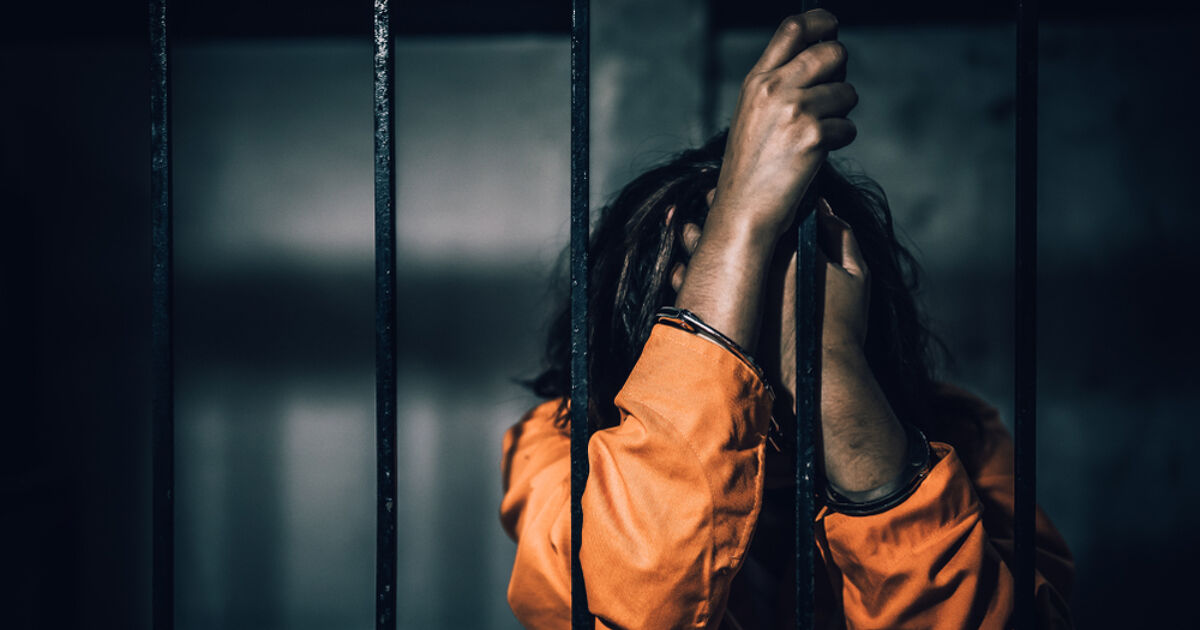
The Department of Justice (DOJ) officials have withdrawn a statement of interest made in support of a transgender female inmate in Georgia who sued the state’s Department of Corrections for allegedly denying her access to gender-affirming surgery, detaining her in solitary confinement, and subjecting her to “decades of violent abuse” by male inmates and guards at the Phillips State Prison in Buford, Georgia.
The woman, a 55-year-old trans inmate identified in court documents as “Jane Doe,” alleged that her mistreatment violated the Americans with Disabilities Act and her Eighth Amendment Constitutional protections against cruel and unusual punishment. The DOJ, under former President Joe Biden, issued a statement of interest supporting her right to access gender-affirming care.
Related
Trump just defunded a national program to end prison rape. It’ll harm queers most.
LGBTQ+ inmates will be disproportionately affected by the “catastrophic” shuttering.
However, in an April 25 court document rescinding its support, the DOJ wrote, “It is now the view of the United States that WPATH [World Professional Association for Transgender Health] Standards of Care lack scientific integrity and should not be relied upon.” The DOJ called WPATH’s standards “hotly contested” and “a matter of contention within the medical community,” even though nearly every major American medical association agrees that gender-affirming care is safe and effective.
Never Miss a Beat
Subscribe to our newsletter to stay ahead of the latest LGBTQ+ political news and insights.
Subscribe to our Newsletter today
The DOJ’s document then cites the Cass Review—a U.K. report that excluded numerous studies showing the benefits of gender-affirming care—writing that while, “Deaths by suicide in trans-identifying individuals are tragically above the national average, [the Cass Report found] there is ‘no evidence that gender-affirmative treatments reduce this.’”
The Cass Report has been condemned by The Yale Law Review which wrote that it “repeatedly misuses data and violates its own evidentiary standards by resting many conclusions on speculation,” and that it “subverts widely accepted processes for development of clinical recommendations and repeats spurious, debunked claims about transgender identity and gender dysphoria.”
The report has also been condemned in a 400-page report released by a consortium of 26 medical and psychotherapeutic professional organizations from Germany, Switzerland, and Austria, as well as by the British Medical Association, the largest doctors’ union in the U.K.
“The prior administration’s arguments in transgender inmate cases were based on junk science,” Assistant Attorney General Harmeet Dhillon said in a press release last Friday. “There has never been an Eighth Amendment right for inmates to demand elective and experimental surgeries. States’ limited resources need not be wasted to provide these dubious surgeries to inmates. The prior administration’s nonsensical reading of the Americans with Disabilities Act was an affront to the very people the statute intended to protect.”
Dhillon has a long history of opposing any expansion of transgender civil rights.
In her lawsuit, Doe alleged that the Georgia Department of Corrections has a “blanket ban” on gender-affirming care. She further accused the department of denying her hormone treatment and the ability to buy women’s commissary items. Denying her these things, she said, worsens her gender dysphoria and violates her rights.
Doe has identified as female since early childhood and began living as a woman around 1988. She was diagnosed with gender dysphoria by multiple medical professionals at the facilities in which she has been incarcerated since 1993.
She began receiving hormone replacement therapy (HRT) in 2015 but her lawsuit says corrections officers confiscated clothing that she tailored to appear more feminine and shaved her head bald as her hair began to grow out. She attempted suicide in 2017 and 2019. Her worsening gender dysphoria has caused her to continue experiencing suicidal ideation and to engage in serious self-harm. She has remained in solitary confinement, and in July 2022 she attempted self-castration.
Nearly 5,000 transgender people are incarcerated in state prisons, according to the Prison Policy Initiative. Most are people of color, most are denied routine healthcare in prison, and an estimated 35% reported harassment by other inmates and prison staff, according to the National Center for Transgender Equality.
In 2021, the DOJ opened an investigation into the allegedly deplorable conditions in Georgia state prisons, sparked by an ongoing investigation into anti-LGBTQ sexual violence committed by prisoners and staff in Georgia.
If you or someone you know is struggling or in crisis, help is available. Call or text 988 or chat at 988lifeline.org. The Trans Lifeline (1-877-565-8860) is staffed by trans people and will not contact law enforcement. The Trevor Project provides a safe, judgement-free place to talk for youth via chat, text (678-678), or phone (1-866-488-7386). Help is available at all three resources in English and Spanish.
Subscribe to the LGBTQ Nation newsletter and be the first to know about the latest headlines shaping LGBTQ+ communities worldwide.